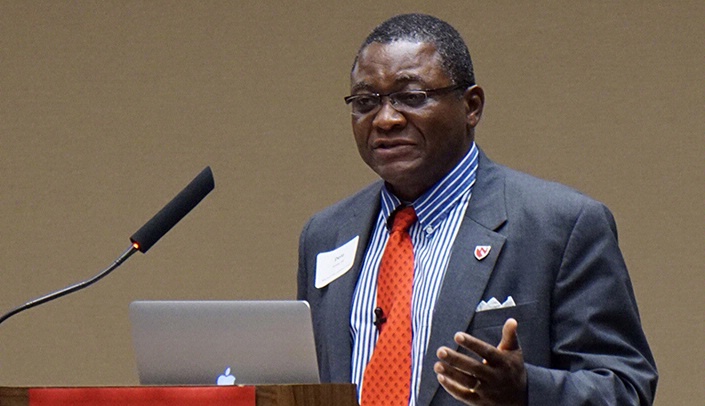“Are you ready to be a leader?”
That’s the question Dele Davies, M.D., vice chancellor for academic affairs, posed to a group of nearly 200 faculty members last week at the second annual Premier Education Banquet.
Hosted by Assistant Vice Chancellor for Faculty Development Howard Liu, M.D., and by Geoffrey Talmon, M.D., the James Linder Residency Director Distinguished Chair, the event featured:
- a presentation on iEXCEL℠ and simulated learning by Pam Boyers, Ph.D., associate vice chancellor for simulation;
- a recap of the University of Nebraska’s first Massive Open Online Course by Denise Britigan, Ph.D.;
- a discussion of active learning and flipped classrooms by Louise LaFramboise, Ph.D., and
- small group sessions.
New technology and its impact on education was the focus of the event.
“We want to use new technology and tools to maximize learning, to help us retain and recall, but not as an end in itself,” Dr. Davies said. “We want to create learners who are adaptive for life. We want learners who are self-directed, self-regulated and know how to learn in the workplace.
“We want to have teachers that guide the students to the information that they need and create the linkages they need to be able to succeed; and we want them to perform in the new health care system in novel ways.
“I believe our future is one where we use a blend of different teaching methods, tools and technology that enable students to learn in the manner and speed that best suits them,” Dr. Davies said.
Dr. Boyers spoke to the group about clinical simulation and iEXCEL℠ as a “gateway to the future,” highlighting new technologies as she discussed iEXCEL as “a means to an end.”
“iEXCEL℠ is here to help you transform the way you teach, the way students learn, and also to help advance research and discovery. In other words to be a springboard into the future,” she said.
“The opportunities are only limited, in my experience, by your imagination and your willingness to have grit and try to do things in a new way.”
Dr. Boyers also spoke of the “sociological triple helix of academia, government, and industry,” saying it would be a part of iEXCEL℠.
“The triple helix is a proactive stance, putting knowledge to use in creating new knowledge. As we raise our technological capabilities, we will need to engage in higher levels of training and knowledge learning.”
